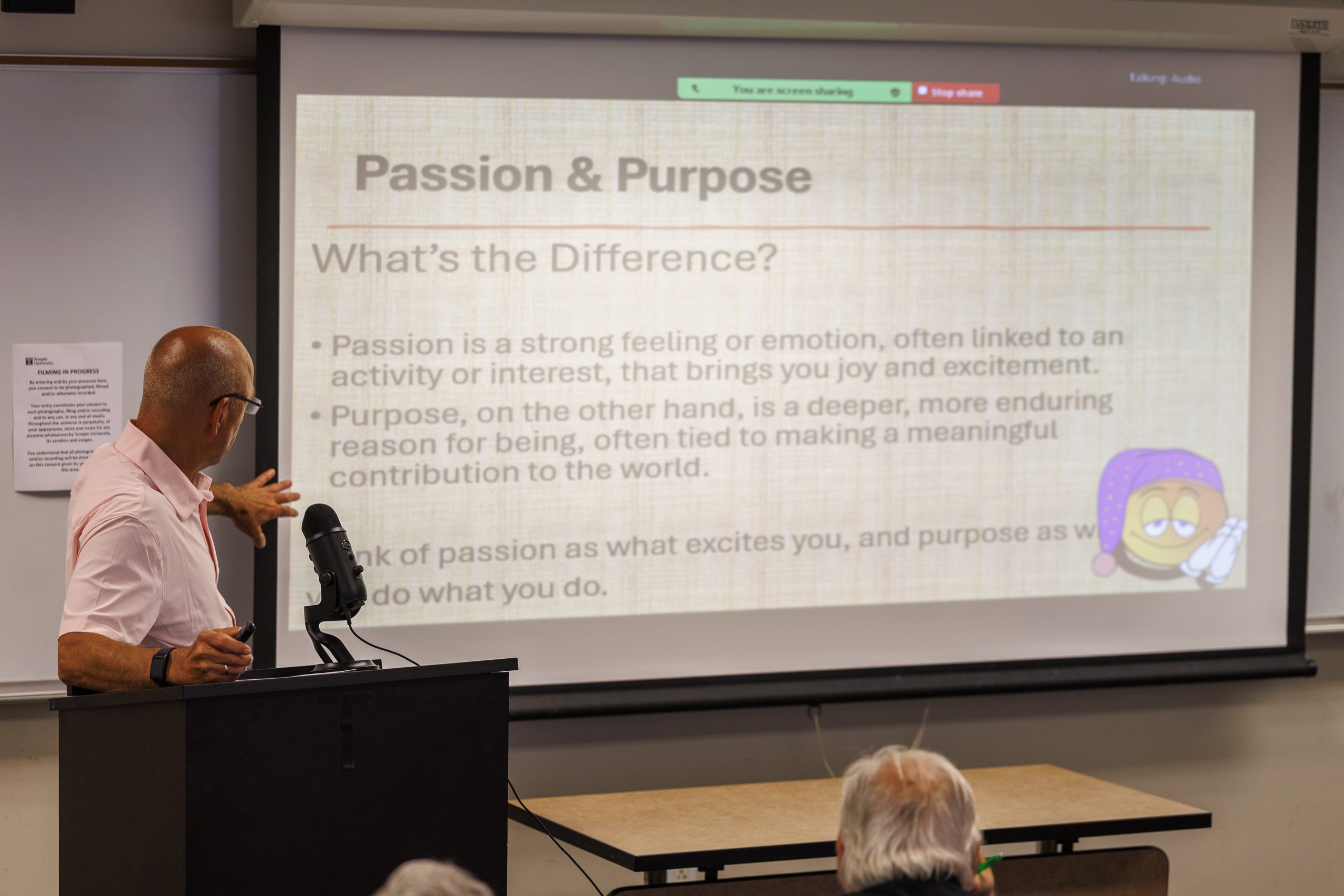
Temple’s 50-Year Legacy: Lifelong Learning for Seniors

Lifelong Learning Thrives at Temple University’s Osher Institute
On a recent afternoon, a lecture hall at Temple University’s Center City campus buzzed with the energy of students eager to learn. The topic? Passion, purpose, and their vital roles in a fulfilling and healthy life. Adam Brunner, the instructor, passionately declared to his class, “I don’t care if you only have one day or one week to live. I would contend it would be far better spent doing what you are passionate about and doing it with a sense of purpose.”
Further reading: Severance Finally Returns to TV What You Need to Know
For many of the students, ranging in age from their 60s to 70s, their passion for learning has drawn them to Brunner’s class, aptly named “Let’s Live as Long and Healthy As Possible.” These students are all enrolled in Temple’s Osher Lifelong Learning Institute, an institution celebrating its 50th anniversary this year. The primary requirement for enrollment? Being 50 years of age or older.
Learning for the Love of It
Unlike traditional college courses, the Osher Institute’s classes are not for credit. There are no exams, no final papers, and the cost is significantly lower than standard tuition. For an annual fee of $290, students can take as many classes as they desire. More affordable options are also available for those who prefer to take classes during a single semester, be it spring, fall, or summer.
Phyllis Sledge, a retired public assistance caseworker from Philadelphia, encapsulates the spirit of the program, stating, “You’re never too old to learn, and you learn something new every day.” Fellow retiree Sylvia Williams, who dedicated 34 years to the Equal Employment Opportunity Commission, echoed this sentiment. “I needed some structure after I retired, something to do to get myself out of the house,” she explained. Both women are also Temple University alumni, having earned their bachelor’s degrees from the institution decades ago.
Sharing Passions Through Teaching
The instructors at the Osher Institute are driven by a desire to share their passions and find the experience incredibly rewarding. James Pagliaro, a former trial lawyer who led the product liability division of a major law firm, describes teaching at the institute as his “encore career.” “I have a passion for sharing my love of art with people,” he says. Pagliaro, who also works as a docent at the Philadelphia Museum of Art and holds a master’s degree in art history from Oxford University, typically attracts 20 to 25 students to his in-person art history classes, with as many as 90 participating online.
Nancy McDonald, an adjunct professor at Wilmington University, is one of Pagliaro’s students. She enjoys learning about artists and their work through Pagliaro’s research. McDonald, who spent much of her career at DuPont and Accenture, also teaches information technology courses at the institute. Instructors in the program are granted the privilege of taking classes for free.
Lynn Marks, a retired public interest lawyer, highlights the diverse learning opportunities available. “People can choose to take classes in areas they know about, or it’s an opportunity to take a class you don’t know a thing about,” she explains. Since 2017, Marks has taught a popular class called “Hot Topics in Justice and Law,” which attracts around 300 students each semester.
Marks previously co-taught the class with Phyllis W. Beck, the first woman to serve on the Superior Court of Pennsylvania and former vice dean of the University of Pennsylvania Carey Law School, until Beck’s passing in March at the age of 97. Their Zoom class featured panels of prominent speakers, including former judges, politicians, scholars, and advocates. Marks intends to continue teaching the class on her own.
The record for the oldest instructor at the institute belongs to Sol Glassberg, who taught until his death in 2023 at the remarkable age of 100.
A Nationwide Network of Lifelong Learning
Temple’s Osher program is part of a larger nationwide network, with similar programs at other universities and colleges, including Pennsylvania State University, the University of Delaware, and Rutgers University.
Penn State boasts nearly 2,000 students participating at various locations, accounting for 18,500 course registrations annually. Rutgers University enrolls over 1,600 students and offers 158 courses throughout the year.
At Temple, over 1,000 students participate in the Osher program annually. Brunner, who has led the program for 16 years, notes that enrollment previously reached nearly 1,400 before the pandemic forced classes to move online. He hopes to increase participation by piloting a new course delivery method in the fall, allowing instructors teaching from home to be streamed into classrooms.
The program is supported by four full-time employees and operates on its own revenue and interest from a $2 million endowment provided by the Bernard Osher Foundation. In addition to classes, members receive free access to Temple’s online library and “tech tutoring” from Temple students.
Fostering Social Connections
A key goal of the Osher Institute is to foster socialization among seniors. The institute encourages members to start and run “shared interest” groups. Those interested in teaching must submit course proposals and resumes to a curriculum committee for review. The committee assesses the applicant’s knowledge of the subject matter and their ability to manage a group of active learners. Teaching experience or a college degree are not required, although most instructors do possess them.
Brunner emphasizes the unique dynamics of teaching older students. “Teaching older students is radically different from teaching younger students,” he explains. “Typically, younger students are more reticent to ask questions or make comments.” Older students, on the other hand, tend to be more outspoken and possess a wealth of life experience.
During Brunner’s lecture, approximately 20 students attended in person, with over a dozen participating virtually, including a group from a senior living community near Jenkintown.
Brunner discussed research highlighting the physical and mental benefits of pursuing passion-driven activities and having a sense of purpose. He argued that even those who are bedridden can lead a life of passion and purpose by engaging in simple acts of kindness and expressing appreciation to loved ones.
Among the attendees was J.J. Broderick, a retired real estate attorney who was diagnosed with primary progressive aphasia. His wife, Colleen Broderick, suggested he take the Temple courses as a way to stay engaged. Despite his challenges with speech, Broderick has found the classes to be a lifeline. “With him,” she said, “it’s been a life preserver.”






